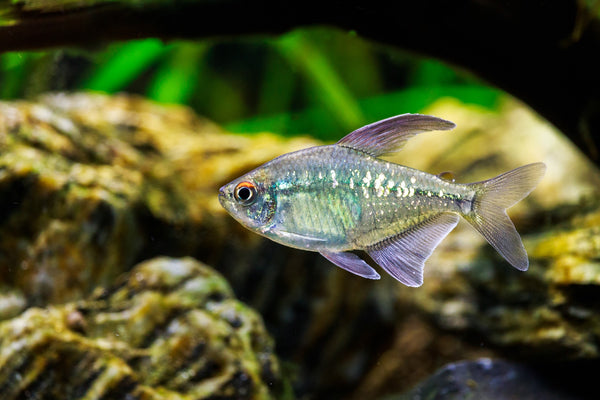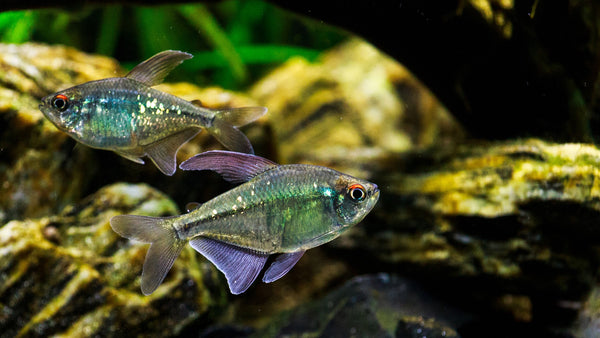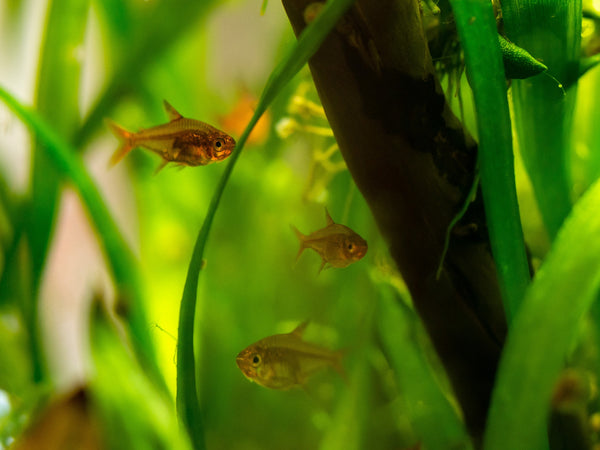
The neon tetra fish makes a wonderful addition to any freshwater tank. These South American natives are a wonderful starter fish for anyone who wants to begin to get into keeping and caring for a fish tank. They are simple fish to care for, but there are a few important things to know about these glowy little fish.
Tetra Fish Care

The tetra is an easy to care for breed of fish but does have specific care requirements that cannot be neglected. Care needs that revolve around their living space and diet. For instance, the water in their tank needs to be within a specific pH and temperature range for them to thrive in their new home.
Tetra Lifespan

In ideal living conditions, the tetra can live as long as 10 years of life. This long life span is ideally in a natural environment, while in a fish tank their lifespan can be shortened by several years. The lifespan of a tetra that is living in a fish tank is directly related to how well their environment is taken care of to prevent diseases.
Tank Conditions

As far as tank conditions go, some specific conditions need to be met for your tetra to live a happy and healthy life with you. The tank or aquarium that you get for your tetra should be at least 24 inches long, which is a decent size for a lot of freshwater fish that will get along with your tetra.
The pH of your tetra tank should also be somewhere between 6-7. This is something that you can check at home with a pH checking kit or at your local pet store. Often pet stores will allow someone to bring in a sample of their fish tank water to test pH among other things that are important to your tetra’s health. Having a tetra fish filter can help to maintain these pH levels. Neon tetras thrive best in a tank that has lots of plant life and low lighting levels.
Diet

The neon tetra is an omnivore and will happily eat anything bite-size that you throw in the tank for them. High-quality fish flakes would make a perfect meal for your tetras. They can also eat shrimp flakes or tropical granules as well. 40% of the content of whatever food you give your tetra should be protein.
There are some treats that you can give your neon tetra on occasion as a snack. Some of these special treats include frozen blood worms, brine shrimp, and daphnia. Stick with giving your tetras the smallest pieces of these treats, as they may not be able to swallow the larger pieces.
A good feeding schedule for your tetras should follow the same schedule that you follow for any other fish you have in your aquarium. One feeding per day is a good frequency for feedings. Being careful not to overfeed your tetra because overfeeding can lead to elevated levels of ammonia in your fish tank, which can be a problem.
Health

One common disease that these tetras face is a parasitic disease commonly called “neon tetra disease”. This disease normally originates either from dead fish in the tank, or from live food such as Tubifex.
This terrible disease starts taking an effect on tetras once it reaches their digestive tract. Once there it will begin to eat the fish’s muscles from the inside of the body to the outside. Keeping the water in your tank in good condition for your fish should be adequate to prevent this disease from spreading throughout your tetras and possibly even your other fish in the tank.
Breeding

To breed tetras, there is a special breeding tank that should be utilized. This special tank separates the male and female fish. This tank should also be put in a place where it can be in the dark. The lighting around the tank should be gradually increased until reproduction occurs.
If creating a sort of light cycle for your tetras does not induct breeding, there is another tactic that can be tried. A large water tank tends to make the tetras feel as though they are back in their natural environment where rainfall occurs often.
Conclusion
Tetra fish make a beautiful addition to any fish tank. Their beautiful, eye-catching neon colors will pop between the beauty of your other fish and the various plants and decorations you have in your tank.
For those who are new to keeping a fish tank should begin with tetras since they are among the easiest of community fish to care for. Easy to care for does not mean they are okay to neglect, however. Tetras require specific water quality as well as dietary needs.




